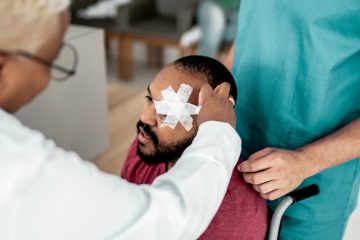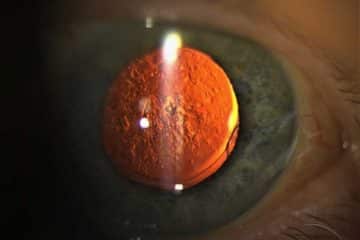If you have low vision or impaired vision from conditions like nearsightedness, cataracts, glaucoma, or macular degeneration, you know this situation comes with many challenges. These may range from moderate (needing glasses to read or drive) to profound (losing your independence or the ability to see a loved one’s face clearly). It’s no surprise, then, that more serious vision impairment is associated with high rates of depression in people of all ages.
Widely available accessibility features and special vision rehabilitation programs can help you cope with stressful challenges and learn to adapt activities to get through each day.
And even small steps — like the ones below — can make life more bearable when you have vision impairment.
Use accessibility features
Certain computer or smartphone features can be very useful. For example, you can enlarge fonts, zoom in on a photo, or have your computer or phone read you documents, calendar items, texts, or emails.
But it may take a little tech knowledge to set up those features — or at least the patience to look up steps to enable the features and work your way through them. For example, your computer may have an accessibility feature that can read aloud areas of text you highlight.
“Learning how to properly use accessibility features can be difficult. Vision rehabilitation clinics can offer programs to help you learn these skills at your own pace,” says optometrist Patrick Lee, a vision rehabilitation specialist at Mass Eye and Ear and an instructor in ophthalmology at Harvard Medical School.
Try special devices
A number of gadgets can assist with vision impairment in your daily life.
- Read-aloud devices. “These include spectacle devices such as the Orcam, a point-and-click device that reads any text you point it toward,” Lee says.
- Magnification devices. “Modes of magnification have been shown to help those with vision impairment. High-powered spectacle readers, handheld magnifiers, and electronic video devices are some options.” Lee notes.
- Smart speakers. Tabletop smart speakers are virtual assistants that connect to the internet and carry out your voice commands to dial a phone number, retrieve information, control other smart home devices (like lights, thermostats, or security systems), and much more.
More: Oculoplastic Surgery
Try helpful apps
Many apps can do the same job as some of the devices we just mentioned.
- Apps that magnify images, such as Mass Eye and Ear’s SuperVision+. It works like a magnifying glass, giving you a closer look when you hold your phone over an object. Your phone may already have a similar app.
- Apps that see for you, such as Seeing AI or Lookout by Google. This type of app gives you a short description of whatever you place in your camera’s sight, including fine print.
- Apps that read you recorded books, such as BARD Mobile from the Library of Congress or Audible. (Though not an app, you may also enjoy the free online talking books program from the Perkins School for the Blind.)
- Virtual assistant apps such as Google Assistant, which does the same job as a smart speaker.
Adapt your home
You may find it helpful to make changes around your house.
- Label objects. Label drawers, books, phones, appliances, condiment bottles, and anything you may need help identifying. Use a large font and high contrast on labels, making them easier to see.
- Supersize numbers and letters. Swap out your old house phone for one with extra-large numbers on the buttons, or get a blood pressure cuff with extra-large numbers in the readout. Other items with extra-large numbers or letters include books, scales, thermometers, computer keyboards, thermostats, clocks, pedometers, TV remotes, calculators, and watches.
- Add more lights. Lighting plays an essential role in vision. You may want to add automatic night lights throughout your house to light your path. Or it may help to add some extra lamps or light fixtures in a particular room. “Properly assessing the positioning of light can help increase reading ability. An adjustable gooseneck lamp is an excellent option, but remember not to face the lamp toward your eye, to combat glare,” Lee says.
Rethink driving
Driving can be very difficult for people with any amount of vision impairment.
- If night driving is too hard, plan ahead. “Allow for a friend or family member to drive you at night, or plan your day accordingly to take slower streets and avoid the highway, lots of traffic, and oncoming lights that can cause glare,” Lee says.
- If you no longer drive, consider using a community ride service. Free rides to doctor appointments and grocery stores are often available through local nonprofit groups and religious organizations for people with vision impairment.
More: Laser Cataract Surgery


